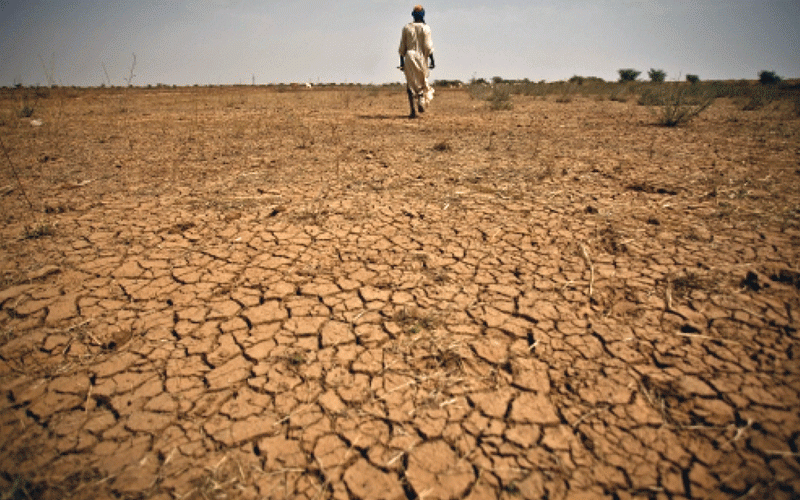
ACCORDING to the latest Global Climate Litigation Report: 2023 Status Review, more and more people are finding solace in the courts of law to combat climate crisis.
The report, produced by the United Nations Environment Programme, says as of end of last year, 2 180 climate-related cases were filed in 65 different jurisdictions, which include international and regional courts, tribunals, quasi-judicial bodies, or other adjudicatory bodies, such as Special Procedures at the United Nations and arbitration tribunals.
This represents a steady increase from 884 cases in 2017 and 1 550 cases in 2020.
This figure will likely increase this year as more people become more conscious of their rights.
Rights groups are taking a prominent role in bringing these cases and driving climate change governance reform across the globe.
What it then means is that climate litigation is now the solution in changing the dynamics of the fight against climate change.
Climate litigation refers to the taking of legal action by organisations, governments or individuals to address the impacts of climate change and hold responsible parties accountable for their contribution to global warming.
These lawsuits are meant to demand justice, enforce environmental regulations and promote climate action.
- COP26 a washout? Don’t lose hope – here’s why
- Out & about: Bright sheds light on Vic Falls Carnival
- COP26 a washout? Don’t lose hope – here’s why
- Out & about: Bright sheds light on Vic Falls Carnival
Keep Reading
Climate litigation can take various forms, which include public nuisance, accountability, and human rights-based litigations.
Corporate accountability lawsuits target companies involved in activities that are deemed to be contributing to greenhouse gas emissions or failing to disclose climate-related risks adequately.
Individuals or interested groups may file a lawsuit alleging that company X or Y has misled them about the risks associated with climate change.
In most cases, litigants would be seeking to hold, for example, fossil fuel companies accountable for being knowledgeable about climate change impacts while funding disinformation campaigns.
Human rights-based climate litigation focuses on the violation of human rights as a result of climate change.
In such cases, it is argued that an identifiable party has failed to take adequate action to mitigate climate change and protect the rights of vulnerable groups.
Such litigation may be based on international human rights frameworks or national constitutions that recognise the right to a healthy environment or other related rights.
Public nuisance lawsuits are filed against companies or entities that contribute significantly to greenhouse gas emissions.
These cases argue that the defendants’ actions have caused harm to the public by exacerbating climate change and its associated impacts, such as rising sea levels, extreme weather events and health risks.
Plaintiffs in these cases often include municipalities, States or groups of individuals affected by climate change.
The motivations behind climate litigation vary depending on specific cases and the parties involved. The major motivation behind these litigations is to seek compensation, force accountability or effect policy change.
Many plaintiffs seek compensation for damages caused by climate change impacts, such as property damage, loss of livelihoods or health issues.
They argue that those responsible for greenhouse gas emissions should bear the costs associated with adaptation and recovery efforts.
In most cases, litigations are usually aimed at holding parties accountable for their action or inaction regarding climate change.
By bringing these cases to court, plaintiffs will be seeking to establish legal precedents that require entities to take more action to reduce emissions and mitigate the impacts of climate change.
More importantly, climate lawsuits are meant to trigger policy change. When a court rules in plaintiff’s favour, it leads to new regulations, stricter enforcement of existing laws, or the development of climate-related policies at local, national, or international level.
In 2019, a Dutch environmental organisation, Urgenda, won a case after it sued its government for failure to take significant steps to reduce greenhouse gas emissions.
The Dutch Supreme Court ruled that the government had a legal obligation to protect its citizens from the dangers of climate change.
Challenges
While climate litigation is fast gaining prominence worldwide, it faces hurdles related to causation, standing, jurisdiction, and opposition from vested interests.
Plaintiffs often face legal hurdles related to standing, which refers to their legal right to bring a case.
Courts may question if plaintiffs have suffered sufficient harm or if they have the legal capacity to sue.
Determining the appropriate jurisdiction in climate litigation can be complicated, especially when the impacts span across multiple regions or countries.
Establishing a direct causal link between specific greenhouse gas emissions and individual climate impacts can be complex.
Proving that a defendant’s actions are responsible for specific damages can be challenging due to the “weird” nature of climate change.
Climate litigation often faces opposition from powerful political and economic interests that benefit from the status quo.
This means that the powers-that-be may resort to various tactics to frustrate or delay climate change lawsuits, rendering such cases costly.
The Juliana vs US government case is a good example. In 2015, 21 youths sued their government, arguing that it violated their constitutional rights by promoting fossil fuel production and contributing to climate change.
The case has faced legal challenges and is still going on, eight years later.
Climate litigation is crucial in tackling climate change and driving policy changes towards a sustainable future.
Holding responsible parties accountable and seeking compensation for damages contribute to global efforts to mitigate greenhouse gas emissions and adapt to changing climate.
Climate litigation is critical in advancing climate justice by seeking legal remedies. Until next week!
Cliff Chiduku is a communications, public policy and governance expert with interests in climate change and environmental issues. He writes in his personal capacity. He can be contacted on [email protected] or Call/App +263775716517.







